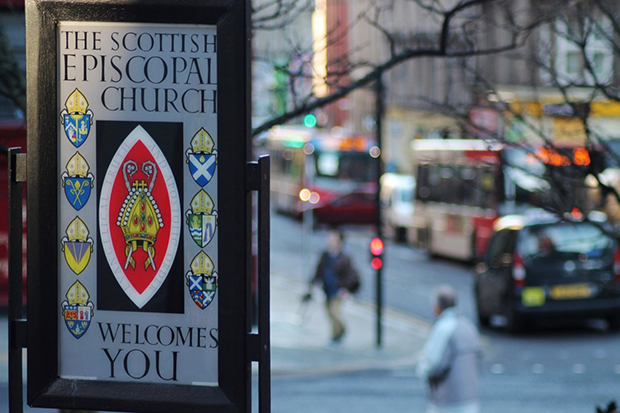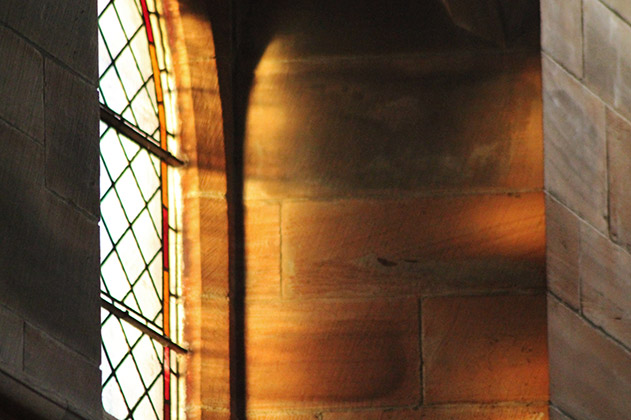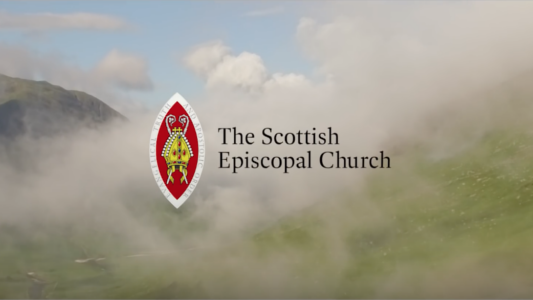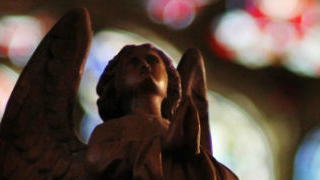On Thursday, the Bishops attended a plenary session and affirmed two Lambeth Calls on Christian Unity and Inter Faith Relations.
The Rt Rev Dr Keith Riglin, Bishop of Argyll & The Isles, reflects on ecumenism in Scotland following discussions at the Lambeth Conference on Christian Unity.
He said: “we heard from a representative from the Roman Catholic Church, who spoke of how far could we go with what we call reconciled diversity in our ecumenical endeavours together. It reminds me of the challenge, and also the opportunities of working with the Church of Scotland in our common agreement. We still have profound disagreements or different practices when it comes to the Eucharist, and holy orders. Yet we are finding new ways of working together.”
The Rt Rev Dr John Armes, Bishop of Edinburgh, reflects on the issues of inter faith relations raised by both a plenary session and a Lambeth Call session this afternoon. Bishop John reports that both calls were affirmed by the Bishops, and that progress has been made on inter faith matters.
He says that in Scotland: “we understand that there’s a lot of common ground actually within our common humanity, on things like response to the pandemic, or response to the climate crisis. Whereas there are parts of the world where faith communities, including Christian faith communities are persecuted and repressed by other faith communities.”
Recounting a story told during the plenary session by the Bishop of Chelmsford, who grew up in Iran, he reflects: “what interfaith dialogue means in that setting is obviously very different to what it means in the Scottish setting. So for myself, I’ve been quite impressed really listening to voices from different parts of Anglican Communion, about the way in which we as a communion are addressing this question of interfaith.”
The Rt Rev Kevin Pearson, Bishop of Glasgow & Galloway speaks on Reconciliation, the environment, meeting the Young Christian Climate Network at COP26, and the future. The Bishops at the Lambeth Conference affirmed a Call on Reconciliation earlier in the conference, details of which can be found here.
Bishop Kevin says: “reconciliation can only begin when we’re reconciled within ourselves to who and what we are, and there is God with us. That’s what Jesus came to show us. And it’s been acted out in these days together. In my own Bible study group I have encountered people from Kenya who are facing the election next Tuesday, and they are in real danger of electoral intimidation. I’m with people from Sudan who face – every day – the sight of people being killed in the streets. And I find that almost totally impossible to reconcile with my Christian faith, until I actually remember that God is love, and love does conquer all.”
Bishop John reflected further in his blog that: “The input offered from around the world was both impressive and astonishing. I feel more and more that the language spoken by my Anglican sisters and brothers is my kind of language, but spoken with more authenticity than I can manage, speaking as I do from the comparatively safe haven of Scotland. Mind you, our interfaith friendships do allow us to enjoy a depth of shared understanding unimaginable elsewhere, and an opportunity to share in the gracious work of God beyond the church; for example, in the pandemic and in facing the urgent challenge of climate change.”
Bishop Anne Dyer (Aberdeen & Orkney) reflected on the Christian Unity aspect of the day, sharing that: “the input in the plenary and then the ‘call’ encouraged bishops to recommit to making friends with church leaders across denominational boundaries. There is so much that can be done through shared mission, which can include shared worship even if full unity is not possible. We acknowledged that to achieve and live in the kind of unity for which Jesus prayed, we have a considerable way to go. This movement requires more than friendships and local relationships. So, we also committed ourselves to push into the relationships and agreements we already have, and be actively seeking further formal agreements, the kind that are necessary steps towards the sharing of sacraments and interchangeability of ministers.”
Bishop Mark Strange (Moray, Ross & Caithness; Primus) wrote in his Lambeth Diary about the events of Tuesday 2nd and Wednesday 3rd August. He reflected on the Call on Human Dignity, and the day at Lambeth Palace. He comments: “In our bible studies we looked at 1Peter 2; 13 -3; 22. Here Peter calls Christ’s followers to unity, compassion, sympathy, mutual love, and reconciliation. Contrary to the feeling outside the conference venue, the atmosphere in that small group was great. In my group we touched on all the issues in the Calls and we discussed it all without anger or judgment, recognising the humanity of those involved.”
Bishop Ian (St Andrews, Dunkeld & Dunblane) noted that he had to “take part today, and for the rest of the Conference, via the livestream, due to isolating after a positive Covid test. It’s very disappointing not to be seeing the bishops I’ve met or meeting new ones, but good not to be spreading anything apart from goodwill.” He spoke about the Calls, saying: “The search for unity between churches is an essential call for Christians, so in our Diocese we are trying to work locally with other churches. There are also local opportunities for Inter-Faith sharing. But the issues are different elsewhere; in South Sudan or Pakistan, for example, majority Muslim countries, the Christian relationship to Islam feels different from the relationship in Scotland. But the urgent need to establish respect and friendship is the same everywhere.”
Lambeth Conference Videos & Media
Today at Lambeth
Today, on Thursday, the Bishops are attending a plenary session on Discipleship, which will be streamed live here.
The Archbishop of Canterbury, the Most Rev Justin Welby, will deliver his 2nd keynote address of the conference: Living in the World as a Christian. This will be streamed live here, or here.








